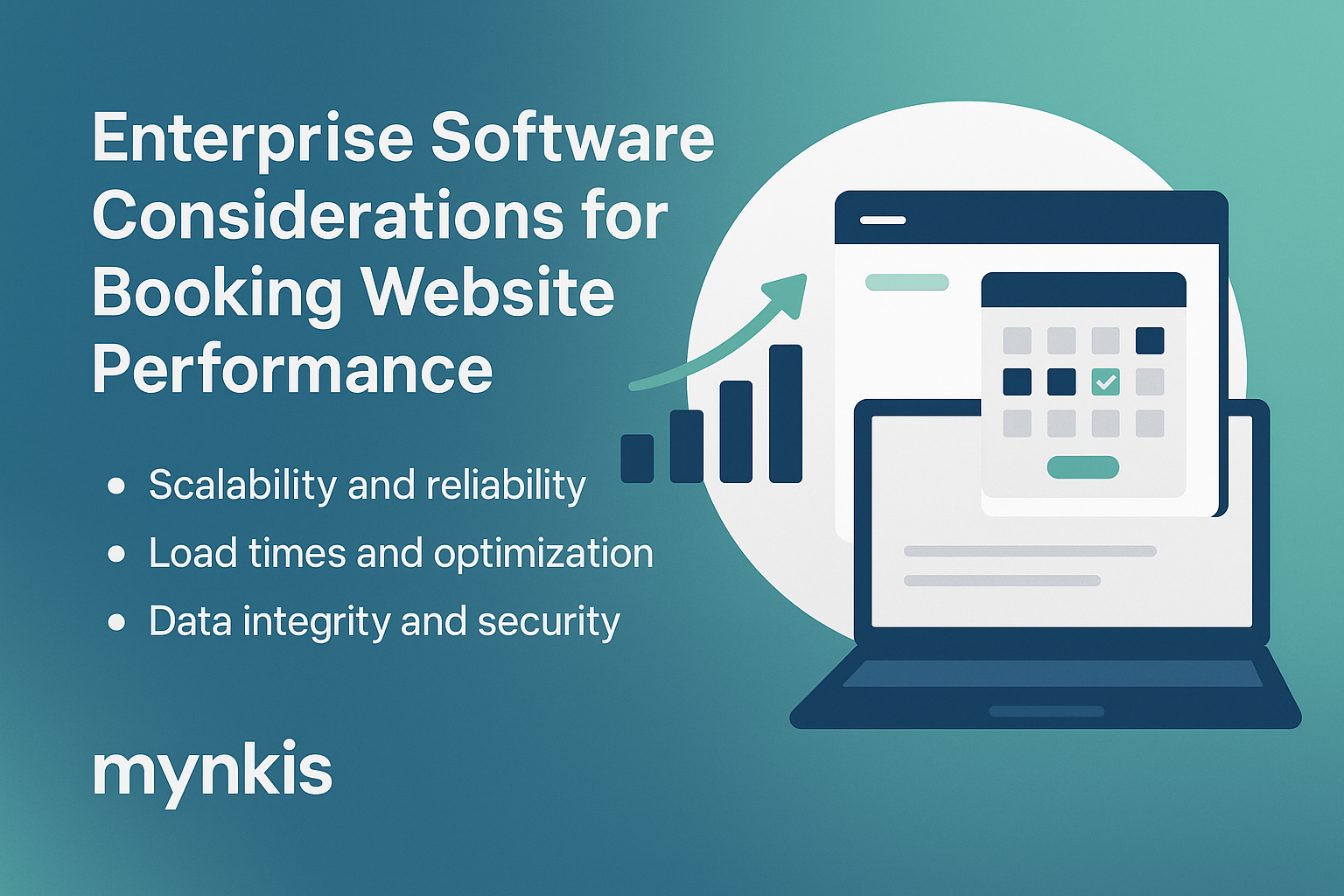Schedule a Demo
Enterprise software development is not just about writing code; it's a strategic move towards enhancing your business operations and user engagement. For owners looking to integrate booking functionalities into their websites, understanding the fundamentals of enterprise-level development is key. From scalability to seamless integration, every aspect of development plays a vital role in the user's experience and the site's overall performance.
Design isn't just about aesthetics; it's a crucial element in steering user conversion. A beautifully designed website might attract users, but the real challenge lies in guiding them through the booking process effortlessly. In my work with various businesses, I've seen that well-placed calls-to-action (CTAs), an intuitive navigation structure, and fast-loading pages significantly increase the likelihood of a user completing a booking. This isn't just a hunch; data from numerous A/B tests conducted across the industry often highlight design's role in enhancing user conversion rates.
Incorporating organic search into your website development strategy is non-negotiable. After all, what good is a fantastic booking system if potential customers can't find your site? From my experience, focusing on keywords related to 'booking websites', crafting content-rich pages, and ensuring mobile responsiveness can drastically improve your site's visibility on search engines. It’s a symbiotic relationship between design excellence and SEO that drives long-term success.
When it comes to enterprise software, planning for scalability is imperative. Your booking system should be able to handle an increasing number of users without compromising on speed or performance. I've observed many startups where initial neglect of scalability considerations led to costly reworks down the line. Leveraging cloud services and adopting microservices architecture are forward-thinking strategies that accommodate growth and fluctuating user demand.
The power of a booking website often lies in its integration with existing systems. Whether it's CRM software or inventory management tools, seamless integration ensures real-time data availability, which enhances user trust and operational efficiency. From discussions with CTOs of several successful companies, the integration aspect is often where many custom solutions fall short, necessitating thoughtful architecture from the outset.
Security isn't just about safeguarding data; it's about winning user trust. Given the sensitive nature of the information involved in booking processes, users want assurance that their data is in safe hands. Based on industry reports, secure websites not only foster better conversion rates but also build a positive brand reputation. Implementing SSL certificates, conducting regular security audits, and ensuring compliance with regulations like GDPR are steps toward cultivating that all-important user trust.
With the rise of technology, integrating advanced features can set your booking system apart. Features like AI-driven recommendations or augmented reality previews not only enhance user engagement but also drive higher conversion rates. In consultations with various businesses, adding these innovative elements has often revitalized interest in older systems, proving that staying ahead of technological trends is a competitive necessity.
Custom software development, while promising in flexibility and performance, does come with an associated cost. As an owner, understanding the investment involved, both in terms of money and time, is crucial. Drawing from my experience, while it may seem intimidating at first, the ROI from a well-designed, user-centric booking system often justifies the initial spend, especially when supplemented with strategic enhancements and ongoing maintenance.
One cannot stress enough the importance of user feedback in refining any software solution. By continuously gathering insights and being responsive to user needs, enterprises can ensure their booking system remains efficient and relevant. I've worked on projects where regular updates, driven by user feedback, dramatically improved both the software's functionality and the business's performance.
Compliance with laws and regulations such as ADA and WCAG standards for accessibility doesn't just boost your site's usability; it also broadens your market reach. I've advised several businesses on ensuring their systems meet these standards, observing how compliance elevates their brand's social responsibility, enhancing user inclusivity and compliance with legal requirements.
Deploying a robust analytics system alongside your booking website allows for continual refinement and optimization. Analytics can reveal insights into user behavior, enabling data-driven adjustments that boost performance. Companies I've helped through this process often witness not just improved conversion rates but a deeper understanding of their customer base.
Developing an effective enterprise booking system is a team sport. Fostering a collaborative development environment between designers, developers, and business stakeholders ensures that the final product aligns closely with business objectives. I've seen firsthand that when everyone is on the same page, from idea inception to final deployment, the results are invariably more aligned and successful.
In the realm of enterprise software development, staying stagnant means falling behind. The industry moves at breakneck speed, and embracing change through continuous learning is vital. Attending conferences, engaging with tech communities, and always questioning 'how can we do this better?' has been key for enterprises I’ve worked with to ensure their booking websites not only meet but exceed user expectations.
As we cast our eyes toward the future, it's clear that the evolution of booking websites will continue to be driven by user needs and technological advancements. From personalized user journeys to blockchain-powered reservations, the landscape is ripe with opportunities for innovation. Standing at this crossroads, adopting a future-focused mindset is crucial for any enterprise looking to maintain and amplify its competitive edge in the market.
